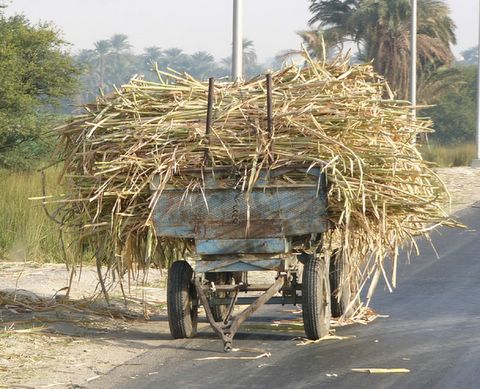About 2 months ago, I wrote a fairly comprehensive commentary on the EU plan to cut its banana trade regime. The regime was implemented in the early 1990s to guarantee a market for all the bananas former European colonies in Africa, the Caribbean and the Pacific (ACP) could export whilst placing quotas on the amount allowed into the EU from all other countries. And, even though the EU measured its cut to wean the affected countries off their dependency on banana trade preferences, the devastation upon these one-crop economies was immediate, pervasive and, evidently, without recourse.

All dressed up and no place to go: By cutting sugar subsidies, the EU may finally compel former colonies to appreciate the sweet and sour taste of Independence…
Yet, the EU announced another unkind cut last week – this time – in its sugar trade regime which was implemented to guarantee similar paternalistic trade protections to ACP countries to those that were provided under the banana regime.
But, despite the EU’s “commitment to assist them in the adaptation process”, the affected ACP countries regard the cut in their sugar subsidies as a death sentence for their economies. Indeed, Guyana’s Minister of Foreign Trade Clement Rohee expressed their common fears as follows:
Sugar is Guyana’s life-blood and some 35,000 sugar workers would be affected along with their families. We see sugar as a way of life in our country….Go to any of the villages where sugar is cultivated… and ask a child to draw a painting. The first piece that will come to mind is something to do with sugar – either someone cutting cane or someone working in the fields.
Unfortunately, it is a testament of their marginalization in today’s global economy that ACP countries seem to think that reprieve from or remedy for their desperate economic outlook lies in appealing to the International Court of Justice (ICJ), when even their fellow pleaders from the banana trade regime could tell them that it’s the World Trade Organization (WTO) that rules in these matters. And, alas, it’s the WTO that declared their EU trade preferences illegal under the General Agreement on Tariffs and Trade (GATT).
Such are the collateral casualties of the inexorable march towards economic globalization. But ACP countries must accept responsibility for contributing to their economic woes by relying on fool’s promises of trade preferences instead of diversifying national revenue streams (as The Bahamas did by cultivating its financial services, insurance and fishing industries) and integrating their economies (to increase bargaining power with trade blocs like the EU) – as they were universally challenged and warned to do decades ago.
Moreover, the regional impact of the cut in EU sugar subsidies will only be compounded by the fact that the countries affected (including Mauritius, Tanzania, Jamaica and Barbados) and will now join those already reeling from the impact of the cut in banana subsidies. And the dynamics and nature of the impact are and will be the same in every material respect (essentially as characterized by the Guyanese minister of trade above).
Therefore, I invite anyone interested in reading more about these developments to see my previous article “Peeling the skin off the Banana Wars”.
News and Politics
Leave a Reply
You must be logged in to post a comment.